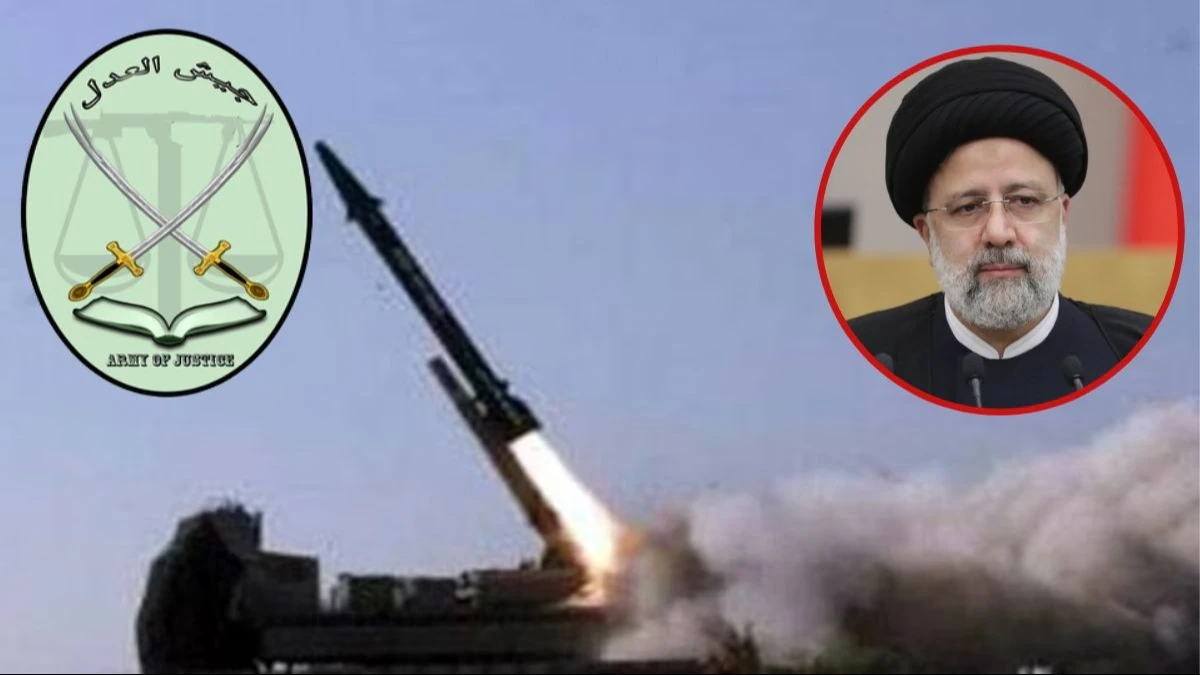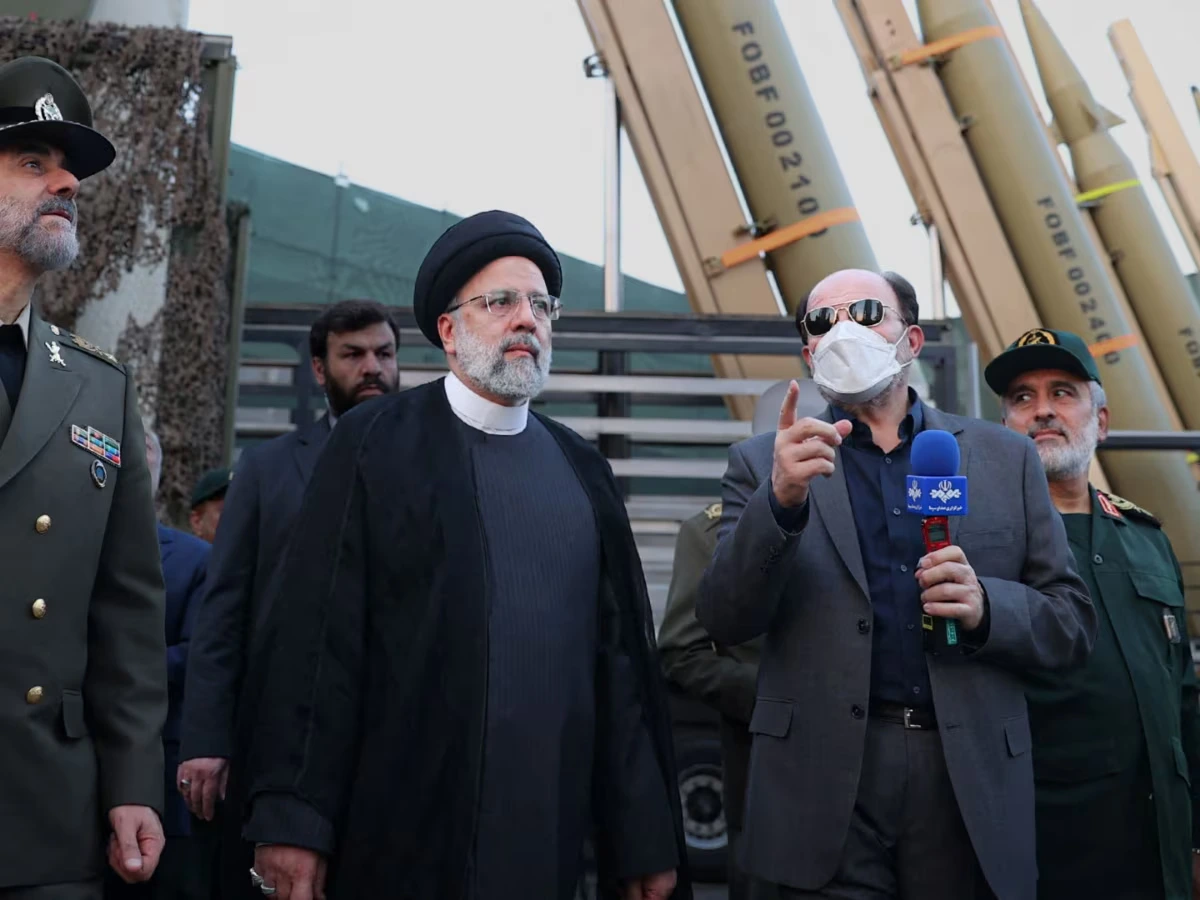In a shocking development, Iran launched a missile strike inside Pakistan’s borders, resulting in the deaths of two innocent children. Pakistan has strongly condemned the attack as an unprovoked violation of its sovereignty, heightening tensions in a region already roiled by conflict. As the international community scrambled to understand the motives behind Iran’s actions, one thing was certain: the attack had serious implications for regional stability. In this article, we’ll explore the fallout of this incident and examine the potential consequences for the Middle East.

Background on Iran and Pakistan Relations
Relations between Iran and Pakistan have been complex and multifaceted, shaped by a range of political, economic, and cultural factors. Historically, the two countries have had a turbulent relationship, with conflicts arising over border disputes, water rights, and support for militant groups. However, there have also been periods of cooperation, such as in the areas of trade, energy, and cultural exchange.
In recent years, tensions have increased between Iran and Pakistan due to a variety of issues, including the presence of militant groups along their shared border, disagreements over water rights, and differing stances on regional conflicts. In 2023, tensions escalated when Iran launched a missile strike inside Pakistan, which was strongly condemned by the Pakistani government. This incident highlights the ongoing challenges facing the relationship between these two countries and the potential implications for regional stability.
Overview of the Missile Strike between Iran and Pakistan
On 17/01/2024, Iran’s Revolutionary Guard launched missile strikes inside Pakistan, targeting bases of the Sunni Muslim militant group Jaish al-Adl. The strikes occurred amid rising tensions in the Middle East, fueled in part by the ongoing conflict between Israel and Hamas in the Gaza Strip.
The Pakistani government strongly condemned the attack, calling it a “blatant violation” of its airspace and sovereignty. Tragically, two children were killed in the strikes, further escalating tensions between the two countries. In response, Pakistan recalled its ambassador to Tehran, and there are fears that the incident could lead to further retaliation or escalation.
The missile strike has highlighted the broader risks of the ongoing conflicts in the Middle East, and the potential for them to spread beyond their immediate geographic boundaries. It remains to be seen how the situation between Iran and Pakistan will develop, but the incident has underscored the urgent need for diplomatic efforts to de-escalate tensions and prevent further loss of life.
Pakistani Response
The Pakistani government has strongly condemned the attack, calling it an “unprovoked violation” of its airspace and sovereignty. Pakistan’s Foreign Minister was quoted as saying, “This aggression is unacceptable, and we reserve the right to respond in self-defense.”
In response to the incident, Pakistan recalled its ambassador to Tehran for consultations, and there are concerns that the missile strike could further escalate tensions between the two countries. Some analysts have raised questions about the legality of the Iranian strike under international law, while others have called for calm and diplomatic engagement to defuse the situation.
The Pakistani public has also reacted strongly to the incident, with many taking to social media to express their outrage and call for a strong response. There are fears that the missile strike could lead to increased instability in an already volatile region, and there are calls for cool heads to prevail to prevent further loss of life.
Iranian Justification for the Attack
According to Iranian officials, the missile strike was aimed at militant groups responsible for attacks on Iranian territory. Iran’s Revolutionary Guard issued a statement saying that the strike was a “defensive action” aimed at preventing further attacks on Iranian civilians.
However, this explanation has been rejected by both Pakistan and Iraq, with Pakistani officials calling the strikes “unacceptable” and Iraqi officials denouncing the attacks as a violation of their sovereignty. The Iranian justification for the missile strike has been met with skepticism and criticism from many quarters, with some analysts questioning the legal basis for the attack under international law.
Iran’s actions have also been condemned by the international community, with many countries expressing concern about the potential for further escalation and calling for restraint from all parties. The incident has highlighted the risks of regional conflicts spilling over into other countries, and the importance of diplomatic efforts to resolve tensions and prevent further loss of life.
International Reactions to Iran and Pakistan Tensions
- The international community has reacted with concern and condemnation to the Iranian missile strike on Pakistani territory. Here are some key reactions:
- The United Nations Secretary-General issued a statement expressing deep concern over the incident and calling for restraint from all parties.
- The European Union’s foreign policy chief condemned the attack, urging Iran to respect the sovereignty and territorial integrity of its neighbors.
- The United States also condemned the attack, with State Department spokesperson stating that it was “deeply troubling and completely unacceptable.
- Regional powers such as Saudi Arabia, the United Arab Emirates, and Turkey have also expressed concern and called for de-escalation of tensions.
- China, a close ally of Pakistan, also condemned the attack and urged all parties to resolve their differences through peaceful means.
The international reactions to the missile strike underscore the potential implications of the incident for regional stability and security, and the need for a coordinated response from the international community to prevent further escalation.

Implications for Regional Stability
Conclusion
The Iranian missile strike on Pakistani territory is a stark reminder of the dangers of regional instability and the potential for conflicts to escalate beyond their immediate boundaries. It underscores the urgent need for diplomatic efforts to resolve conflicts, de-escalate tensions, and prevent further loss of life.
The international community must play a proactive role in facilitating dialogue and promoting peaceful resolutions to disputes. At the same time, all parties involved must exercise restraint, respect the sovereignty of their neighbors, and prioritize the protection of civilian populations.
Only through a sustained and coordinated effort can we hope to prevent further escalation and build a more stable and secure future for the people of the Middle East and beyond. The Iranian missile strike is a wake-up call, and we must seize this moment to work towards a more peaceful and prosperous future for all.
If you found this analysis insightful and are interested in exploring more diverse topics, we invite you to read our latest article on WWE 2K24. Delve into the exciting world of professional wrestling gaming, where entertainment meets athleticism in an electrifying virtual experience. Your engagement and feedback are always appreciated as we continue to bring a wide array of intriguing topics to your reading list.



